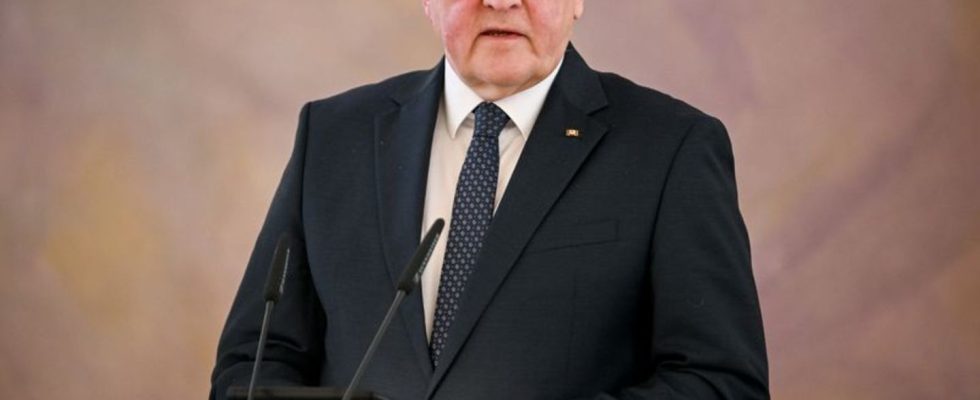extremism
Steinmeier calls for an alliance against extremism
The demonstrations of the past few weeks have set an example, says Federal President Frank-Walter Steinmeier. photo
© Britta Pedersen/dpa
Hundreds of thousands took to the streets at the weekend to demonstrate against the right. “If our democracy is attacked, then a limit has been crossed,” says Frank-Walter Steinmeier.
In the past few days, hundreds of thousands have demonstrated in many cities against right-wing extremism and the AfD. The trigger was a report by the media company Correctiv about a meeting of radical right-wingers in Potsdam with some AfD politicians as well as individual members of the CDU and the very conservative Union of Values. According to participants, it was about the concept of so-called remigration. When right-wing extremists use the term, they usually mean that large numbers of people of foreign origin should leave the country – even under duress.
Steinmeier sees the country shaken up
Steinmeier said: “The news about expatriation plans, according to which right-wing extremists want to expel millions of people, even German citizens, has shaken up our country.” The demonstrations of the past few weeks have set an example. An alliance against extremism alone cannot make the difference, said Steinmeier. But it could be encouraging to show shared responsibility.
The AfD criticized not only the media company Correctiv, but also Steinmeier. Party and parliamentary group leader Tino Chrupalla said in Berlin that he would like the Federal President not to take sides as a former SPD member, but “that he should try to unite this country and this division that I am currently seeing and that is causing me also causes concern, counteracts”.
Weidel feels reminded of “very dark times”.
Co-chairwoman Alice Weidel said the AfD was being “defamed with slander.” She added: “But I can tell you that this won’t hurt us in the long run, it will make us stronger. Because mechanisms are used here that personally remind me of very dark times, and I, the party, want an alternative not possible for Germany.”
AfD parliamentary group leader Bernd Baumann said there were “a few hundred thousand” on the streets, but the AfD had ten million voters. “We see this as the last attempt, so to speak, the last attempt to somehow score points in the upcoming elections because the political arguments have run out in the parliaments.”
Defeat for the AfD in Thuringia
At the Potsdam meeting in November, the former head of the right-wing extremist Identitarian Movement in Austria, Martin Sellner, said he spoke about so-called remigration. AfD politicians are also publicly calling for “remigration”. Many of the mass demonstrations are explicitly directed against the party.
This also experienced a setback on Sunday in the district election in the Saale-Orla district in eastern Thuringia. Although their candidate Uwe Thrum was well ahead in the first round, he was defeated in the runoff by the CDU candidate Christian Herrgott. However, Baumann interpreted it this way: The fact that Thrum received 47.6 percent of the vote was a “sign of strength.” All other parties have “barrenched themselves” behind the CDU candidate, so to speak. Thuringia’s CDU leader Mario Voigt called Herrgott’s election victory a “success for the democratic center.”
The Thuringian AfD around its state party and parliamentary group leader Björn Höcke is classified and monitored by the state Office for the Protection of the Constitution as definitely right-wing extremist.

